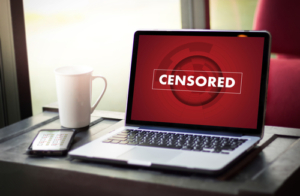The Shift in Zuckerberg’s Stance: A New Era of Social Media Oversight?

As we watch the ever-evolving landscape of social media, one figure remains at the center of controversy: Meta’s CEO, Mark Zuckerberg. Recently, he has made headlines for swiftly reversing his formerly rigid stance on content moderation. With significant implications for society’s engagement with digital platforms, Zuckerberg’s actions raise questions about the future of free speech online.
A Change of Heart
In a stunning twist, Zuckerberg appears to be shifting gears as Donald Trump prepares to reclaim his political foothold. Historically, Meta—previously known as Facebook—has been accused of being a leveraging tool for government agendas, particularly in the context of U.S. elections and the COVID-19 narrative. Concerns about censorship reached a boiling point over the summer of 2024, prompting an investigation by the House Judiciary Committee. Zuckerberg’s subsequent denouncements of government pressure reveal a complex intertwining of corporate interests and political maneuvers.
“I believe the government pressure was wrong and I regret that we were not more outspoken about it,” Zuckerberg stated in an open letter on August 26, 2024. Acknowledging past censorship practices that suppressed discussions about COVID, vaccinations, and controversial political narratives, it became clear that Meta’s role in public discourse had drawn ire from multiple angles.
Electoral Manipulation or Civic Duty?
Zuckerberg’s involvement in the 2020 U.S. Presidential Election has raised eyebrows. Allegations persist that he utilized significant financial resources—over $400 million—to effectively reshape electoral outcomes. This included backing efforts framed as “electoral infrastructure” meant to ensure safe voting practices amidst a pandemic. However, critics argue this was a calculated move to sway the election in favor of the Democratic agenda, particularly through heavy investments in voter outreach in key battleground states.
The role of social media as a platform for manipulation rather than genuine civic engagement has never been more explicit. At Extreme Investor Network, we understand the vital importance of transparency in economic structures, including digital platforms like Meta that have an outsized influence on public opinion.

Acknowledging Bias in Fact-Checking
Now, Zuckerberg is vocalizing criticisms of the very fact-checking operations that his platform once employed. Transitioning to a "community notes" system allows users to engage more directly in vetting information circulating on the platform. “The fact checkers have just been too politically biased and have destroyed more trust than they’ve created,” Zuckerberg admitted, suggesting that historic practices may have inadvertently fueled division rather than understanding.
This shift highlights the necessity for balance in digital discourse—a principle we hold dear at Extreme Investor Network. The landscape of information sharing must evolve to empower individuals, rather than suppress dissenting voices under the guise of protecting the public.
The New Frontier of Speech and Censorship
In an unexpected twist of fate, Zuckerberg has recently called for the removal of restrictions on “forbidden keywords” regarding migration and gender rights. “What started as a movement to be more inclusive has increasingly been used to shut down opinions,” he claims. As he repositions Meta’s image, questions arise: Is this a genuine change in ethos, or a strategic maneuver to win favor as political tides turn?
While Europe’s legislative approach to digital discourse increasingly veers towards censorship, and many Latin American nations engage in covert information suppression, the U.S. remains a bastion of constitutional protections for free speech. Yet, as Zuckerberg himself acknowledges, no platform is immune to the complexity of bias—especially amid an ever-increasing volume of digital information.

The Road Ahead
In his bid to mend fences with Trump’s base, Zuckerberg faces the daunting task of rebuilding trust—particularly in a climate where censorship was rampant. His willingness to promote more significantly open dialogue contrasts sharply with his past actions, and skepticism towards Meta remains high.
The role of social media in shaping economic and political narratives cannot be overstated. At Extreme Investor Network, we advocate for transparent dialogues, free of coercion and influence from powerful entities. As the future unfolds, only time will tell whether Zuckerberg’s pivot is a calculated strategy or a sincere commitment to uphold our fundamental right to free expression.
As the issue of censorship continues to challenge our digital experiences, let’s foster a community dedicated to safeguarding our voices in the noisy arena of social media.
If you want to stay updated on the latest developments in economics, digital platforms, and the political implications of technology, follow us at Extreme Investor Network. Your voice matters—let’s ensure it is heard!

